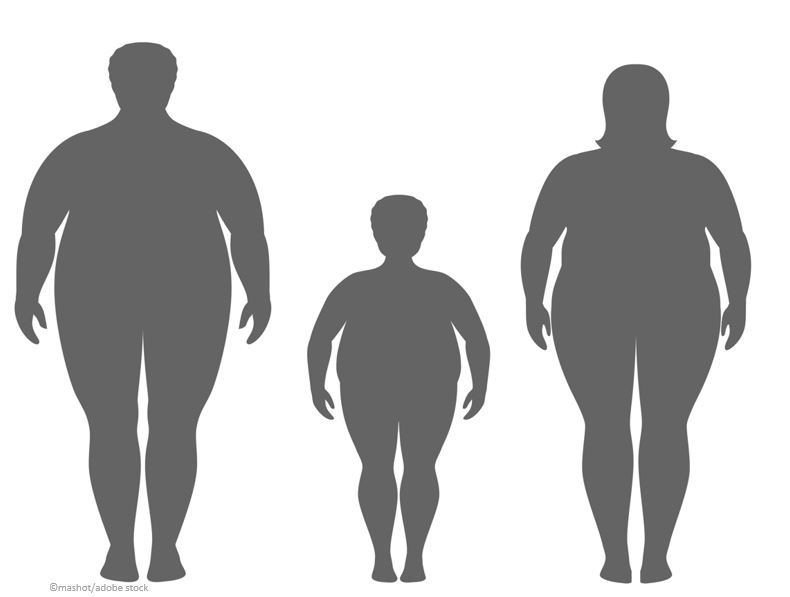- Clinical Technology
- Adult Immunization
- Hepatology
- Pediatric Immunization
- Screening
- Psychiatry
- Allergy
- Women's Health
- Cardiology
- Pediatrics
- Dermatology
- Endocrinology
- Pain Management
- Gastroenterology
- Infectious Disease
- Obesity Medicine
- Rheumatology
- Nephrology
- Neurology
- Pulmonology
Children of Parents with Obesity or Overweight Face Increased Risk of MASLD Later in Life
DDW 2024. Offspring with both parents with overweight had a nearly 3-fold increased risk of MASLD in young adulthood, according to new data.

New research shows that offspring with both parents with overweight at pregnancy had a nearly 3-fold increased risk of metabolic dysfunction-associated steatotic liver disease (MASLD) in young adulthood.
Findings are from a prospective case-cohort study presented during Digestive Disease Week 2024, May 18-21, 2024, in Washington, DC.
“To our knowledge, this is among the initial studies to demonstrate that obesity in both mothers and fathers is linked to a heightened risk of MASLD in their children, extending into early adulthood,” presenting author Stefani Tica, MD, MPH, clinical fellow in pediatric gastroenterology, hepatology, and nutrition at Washington University in St. Louis, Missouri, and colleagues wrote.
According to researchers, MASLD is the most common chronic liver disease globally and incidence is increasing in children and young adults.
“Emerging evidence suggests that developmental and early-life exposures, such as parental obesity, may play a critical role in one’s susceptibility to disease, yet epidemiologic evidence is limited,” Tica and coauthors noted.
Using data from the Avon Longitudinal Study of Parents and Children, investigators examined the association between parental obesity and incidence of MASLD in young adult offspring. The Avon Longitudinal Study of Parents and Children was a birth cohort study that enrolled more than 14 000 pregnancies from 1990 to 1992 in Avon, United Kingdom.
Investigators followed offspring periodically from birth to adulthood, assessing lifestyle and clinical measurements and collecting biologic specimens. Transient elastography (TE), along with measurement of plasma and serum biomarkers, was performed at age 24 years, according to the study abstract.
For the purpose of the study, MASLD was identified based on the recently updated definition, which is the presence of at least grade S1 steatosis on TE and at least 1 cardiometabolic risk factor (eg, body mass index [BMI] ≥25 kg/m2 or waist circumference >94 cm for men and >80 cm for women, known hypertension, known diabetes).
Researchers utilized logistic regressions to examine the association between parent BMI and adjusted for several parental characteristics during pregnancy (eg, parental age, education, prepregnancy alcohol use, smoking, diet, maternal exercise) and early life factors such as mode of delivery, birthweight, duration of breastfeeding, early antibiotic exposure, and diet at age 7.
Results showed that among the 3668 offspring included in the analysis, 18.4% had MASLD at age 24. Also, investigators reported that for every 5 unit increase in maternal BMI, offspring risk for MASLD increased 37% (adjusted OR [aOR] 1.37, 95% CI 1.14-1.64), and for every 5 unit increase in paternal BMI, the risk increased 54% (aOR 1.54, 95% CI 1.26 – 1.87).
Furthermore, offspring with parents who were both overweight (BMI ≥25 kg/m2) at pregnancy had a 2.61-fold risk of MASLD in young adulthood (aOR 2.61, 95% CI 1.73 – 3.95) compared to those with parents with normal weight.
“These compelling results underscore the importance of further validation in diverse populations and emphasize the urgency of preventing and managing parental obesity as a way to combat the escalating incidence of MASLD among younger generations,” Tica et al concluded.
Reference: Tica S, Zong X, Tarr PI, Cao Y. Parental obesity at pregnancy with risk of metabolic-dysfunction associated steatotic liver disease in young adult offspring. Presented at: Digestive Disease Week; May 18-21, 2024; Washington DC.
